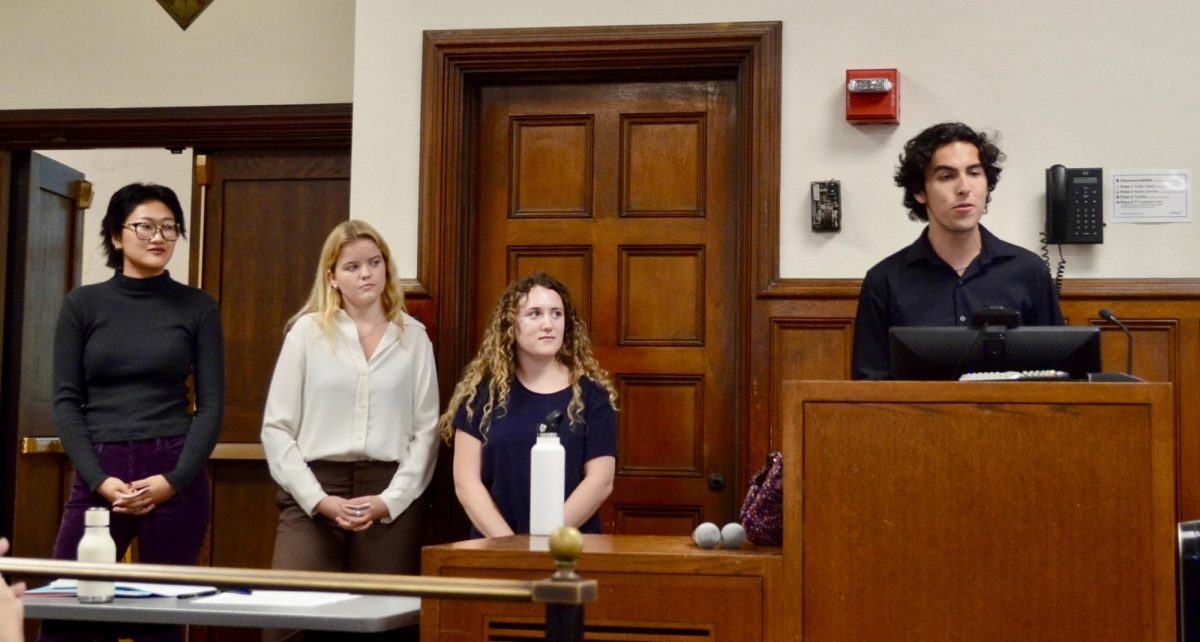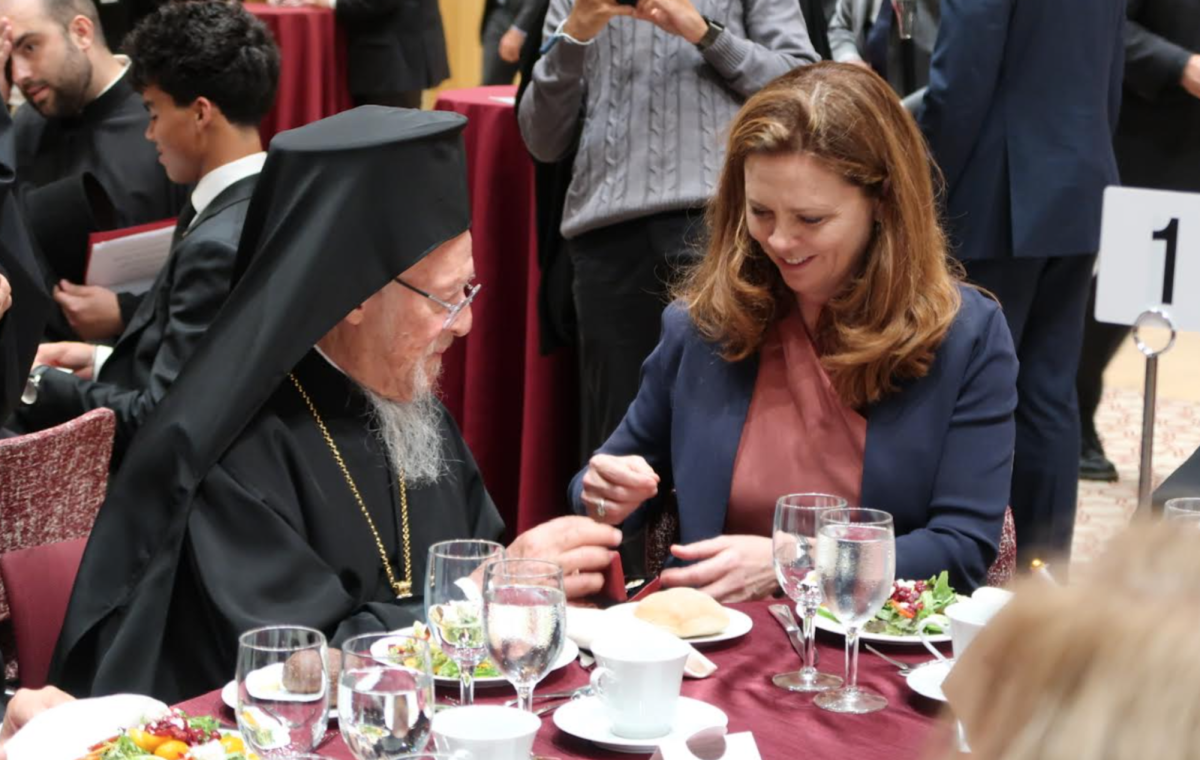By KATIE MEYER & JOSEPH VITALE

Fordham’s Student Sustainability Council — a student group formed under Fordham’s Sustainability Council and United Student Government last semester — has recently mobilized to advance the university’s efforts to improve its recycling efforts across campus. Its solution? Installing e-waste recycling bins in residence halls.
E-waste is defined as any discarded electrical material or electronic device. By prohibiting receptacles for these items, the Sustainability Council will be giving students an easy and environmentally friendly way to recycle items like printer cartridges, cell phones, MP3 players and headphones.
The Council plans to begin implementing this solution next year. The first halls to receive the new bins will be Salice-Conley and Campbell. The program is intended to expand upon existing recycling programs, such as existing receptacles for aluminum, cardboard, glass, paper and plastics, and increase awareness on Fordham’s campus about its role in the environment.
Such programs have been attempted before, but without much success.
“A few years ago we tried it, I think in McGinley Center,” said Marco Valera, vice president for facilities at Fordham. “But it was several years ago and they didn’t get a lot of participation, so at that time they stopped that particular effort.”
However, the newly formed Sustainability Council decided that it was time to give e-waste recycling another try.
Valera is also the Chairman of the Sustainability Council. The committee, a mixture of administrators, faculty, staff, students and consultants, conducts monthly meetings to further the university’s efforts to improve various environmental aspects of the campus. This includes recycling, energy use and greenhouse gas emission, among other efforts.
This new e-waste effort is not so much a response to Fordham’s recycling efforts as it is a furthering of such programs.
Fordham University has committed itself “to recycle as much material as possible, in line with commonsense operational requirements.” In addition, the university, on its website, has stated it will look at “all avenues to reduce waste and to purchase renewable and reusable products.”
Another program that has successfully reduced waste on campus, especially electronic waste, is the installation of Goodwill donation boxes. These are particularly useful during move-out at the end of the spring semester.
“The initiative that I’m most proud about is the move-out Goodwill [program],” Valera said. “I believe last year we collected over two tons of material…we really want to promote that, and you’ll be hearing more [from Student Affairs, as well as Facilities].”
“We have dramatically reduced the number of trash containers,” said Valera. “We used to have two to three containers per building for move-out, now we’re to one in each area.”
The Goodwill drop boxes have also been installed at Lincoln Center, where Valera said they have generated a lot of interest from the community. There have been even more donations collected at that campus; Valera put the number close to three tons. “It adds up,” he said. “We really want to promote that to the community. You want to get a head start on move-out? Please bring it to the Goodwill box.”
The program was started in 2010, and Valera said it has established a strong presence on campus in the four years that it has been running.
“It’s just become something that the students now are used to doing, and also the staff are confortable with it,” he said.
In regard to funding, the group is looking to work with Fund Factory. As part of the e-waste initiative, cardboard boxes will be placed in residential halls for collection of small electronics, cell phones and toner cartridges. The recycled items will be sent back for refurbishing or recycling, and the funds generated will be paid to Fordham.
The Student Committee hopes to use these funds to pay for the placement of recycling bins in residential apartments and eventually begin saving up money to sponsor student-run environmental projects. In addition to the collection of these funds, the committee hopes to raise money through on-campus donation-based events. The bins, provided by Fordham Club and Student Sustainability Committee will be distributed following residence hall meetings about recycling. In the case of misplaced or damaged bins, a fine system will be implemented to account for the sustainability of the e-waste effort.
The group is also seeking the cooperation of Campus Operations, which they hope will routinely dispose of trash in the bins and sort through recyclable materials appropriately.
Students who have been living in residence halls on campus are receptive to the effort.
“When it is fully implemented, along with more e-waste bins, [the e-waste initiative] would be greatly beneficial to the environment,” Zane Larwood, FCRH ’16, said. “If the campaign is as publicized as the general recycling contest last spring, it will be greatly successful.”
“If the committee can quantify the amount of e-waste bins over the course of a typical year, then the student body will make the effort to recycle. The student body has clearly taken the initiative to recycle in general, e-waste is not that far of an extra step,” he added.
Fordham’s Student Sustainability Council is also pursuing ways of informing students about its specific goals. It plans on having Residential Life, through its resident assistant staff, mediate the e-waste program. In addition, the student group is looking to work with New Student Orientation to conduct a presentation on e-waste during the school’s opening events.








































































































































































































Jillian • Mar 31, 2015 at 1:02 pm
Quick question: where exactly are the goodwill bins installed? I thought there used to be one by O’Hare, but I just went to donate something, and it’s not there anymore.